AITA for laughing hysterically after my husband called me "housewife" and embarrasing him infront of coworkers?
In a quiet suburban home, a simmering tension erupted over a simple introduction, exposing wounds deeper than a mere t*tle. She was reduced to "the housewife" in front of strangers, dismissed and diminished by the very person who vowed to honor her. Yet, her laughter broke through the facade—a raw, defiant declaration that she was more than a label, more than his careless words.
The dinner table, meant for camaraderie, became a battleground of silent accusations and shattered illusions. His embarrassment masked a fragile ego, while her truth challenged the narrative he wanted to control. As the night fell into heavy silence, both were left grappling with the cost of honesty and the painful cracks in their marriage.

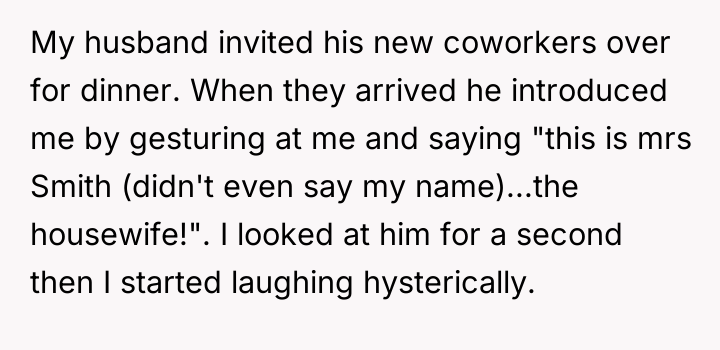
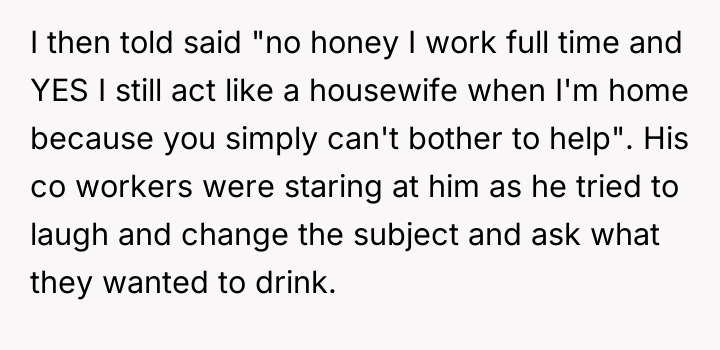
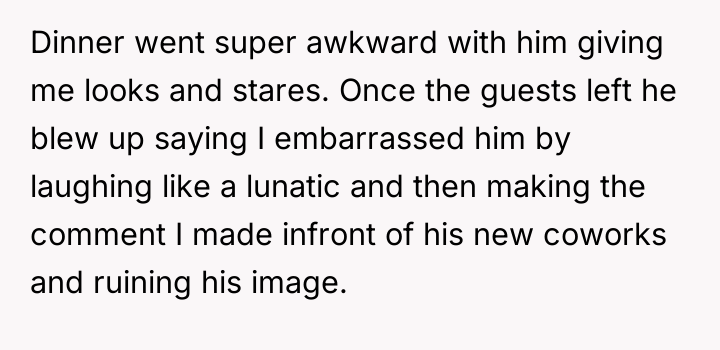
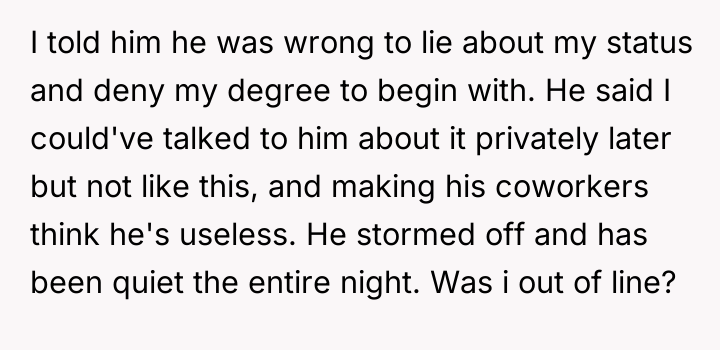
Subscribe to Our Newsletter
As renowned researcher Dr. Brené Brown explains, “Boundaries are the distance at which I can love you and me simultaneously.” The husband’s action of introducing his wife with a dismissive title (“the housewife”) and omitting her name serves several potentially damaging functions: it reduces her professional identity to a stereotype, reinforces an outdated division of labor, and exerts a form of public control over her narrative. The OP's explosive reaction—hysterical laughter followed by a direct, accusatory statement about the division of labor—is a clear, albeit emotionally charged, attempt to immediately enforce a boundary regarding how she is presented to others. Her response targeted the dishonesty (lying about her status/degree) rather than just the domestic labor imbalance, suggesting the professional slight was the primary trigger. The husband's subsequent reaction focuses entirely on his damaged image in front of his new colleagues, framing the OP's actions as 'embarrassing' and 'lunatic.' This indicates a potential pattern of prioritizing external perception over internal marital respect. While direct confrontation in front of guests can create immediate social tension, the husband created the conditions for that tension by publicly misrepresenting his partner. A more constructive approach for the OP in the future might involve establishing clear agreements beforehand about how she wishes to be introduced, especially in professional settings. If such agreements are violated, addressing the issue immediately afterward, perhaps by saying, "I need to address what you said earlier when we are alone," allows for boundary setting without completely derailing a social event.
AFTER THIS STORY DROPPED, REDDIT WENT INTO MELTDOWN MODE – CHECK OUT WHAT PEOPLE SAID.:
Users didn’t stay quiet — they showed up in full force, mixing support with sharp criticism. From calling out bad behavior to offering real talk, the comments lit up fast.
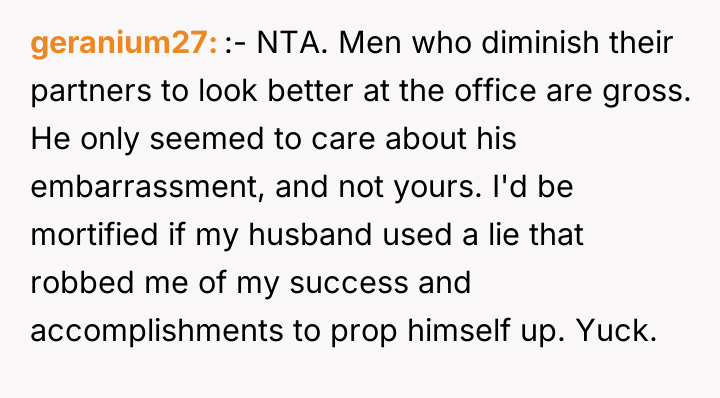
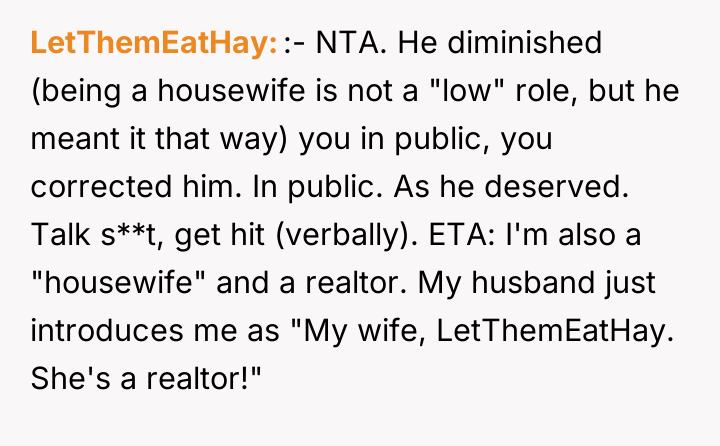

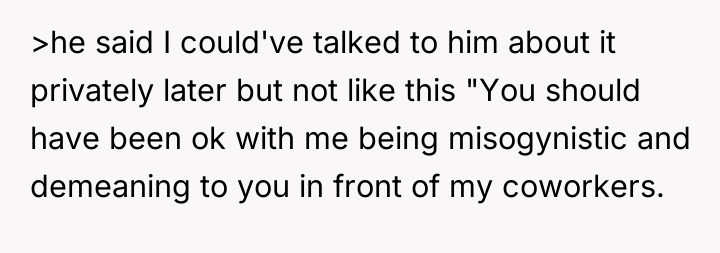

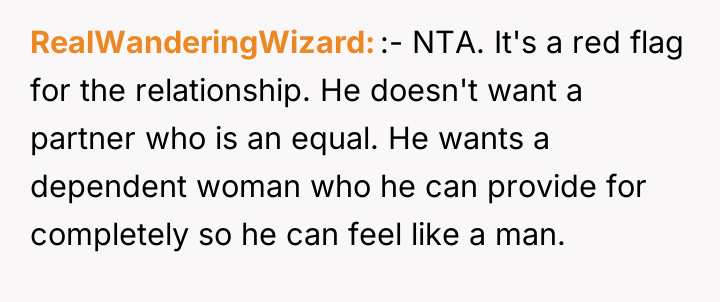
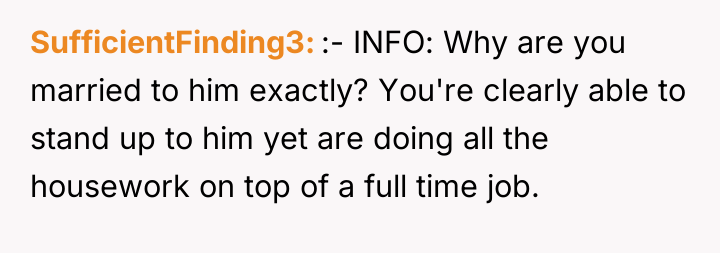
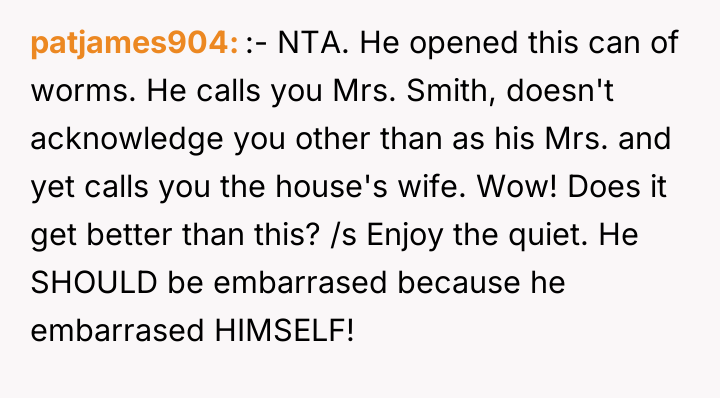

The original poster (OP) reacted publicly and emotionally to her husband's demeaning introduction, which minimized her professional status and framed her solely as a domestic worker. The central conflict lies between the husband's desire to control his public image by misrepresenting the OP's role and the OP's immediate need to assert her identity and challenge the implied unequal division of labor within their home.
Was the OP's public, intense reaction justified as a necessary defense against public misrepresentation, or should she have prioritized marital privacy and addressed the husband's insecurity about household duties privately later, as he suggested?